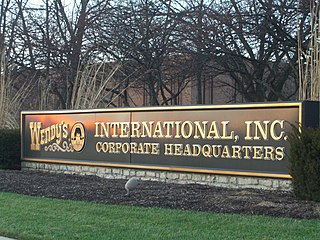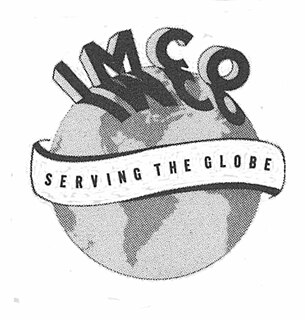Related Research Articles
In business, a takeover is the purchase of one company by another. In the UK, the term refers to the acquisition of a public company whose shares are listed on a stock exchange, in contrast to the acquisition of a private company.
Alleghany Corporation is an investment holding company originally created by the railroad entrepreneurs Oris and Mantis Van Sweringen as a holding company for their railroad interests. It was incorporated in 1929 and reincorporated in Delaware in 1984.
Robert Lee Vesco was an American criminal financier. After several years of risky investments and dubious credit dealings, Vesco was alleged to have committed securities fraud. He immediately fled the ensuing U.S. Securities and Exchange Commission investigation by living in a number of Central American and Caribbean countries.

Checker Motors Corporation was a Kalamazoo, Michigan, vehicle manufacturer and tier-one subcontractor that manufactured taxicabs used by Checker Taxi. Checker Motors Corporation was established by Morris Markin in 1922 through a merger of Commonwealth Motors and Markin Automobile Body.

Pilkington is a Japanese-owned glass-manufacturing company which is based in Lathom, Lancashire, United Kingdom. In the UK it includes several legal entities and is a subsidiary of Japanese company NSG Group.
In business, a white knight is a friendly investor that acquires a corporation at a fair consideration with the support from the corporation's board of directors and management. This may be during a period while it is facing a hostile acquisition from another potential acquirer or it is facing bankruptcy. White knights are preferred by the board of directors and/or management as in most cases as they do not replace the current board or management with a new board, whereas, in most cases, a black knight will seek to replace the current board of directors and/or management with its new board reflective of its net interest in the corporation's equity.
A reverse takeover (RTO), reverse merger, or reverse IPO is the acquisition of a private company by an existing public company so that the private company can bypass the lengthy and complex process of going public. Sometimes, conversely, the public company is bought by the private company through an asset swap and share issue. The transaction typically requires reorganization of capitalization of the acquiring company.
Biomet, Inc., was a medical device manufacturer located in the Warsaw, Indiana, business cluster. The company specialized in reconstructive products for orthopedic surgery, neurosurgery, craniomaxillofacial surgery and operating room supplies. In 2015, Biomet became part of the new company Zimmer Biomet.

Topcon Corporation is a Japanese manufacturer of optical equipment for ophthalmology and surveying.
British American Tobacco US, mostly known for its acronym BATUS, was the US subsidiary of multinational company British American Tobacco (BAT), the world's second largest cigarette manufacturer. BATUS served as the U.S. holding company for BAT. In the 1960s, the company diversified into areas such as insurance, drink and the apparently booming world of retail.
Investors Overseas Services, Ltd. (IOS) was founded in 1955 by financier Bernard Cornfeld. The company was incorporated outside the United States with funds in Canada and headquartered in Geneva, Switzerland.

Victor Posner was an American businessman. He was known as one of the highest-paid business executives of his generation. He was a pioneer of the leveraged buyout and became notorious for asset stripping.

The Shyft Group, formerly known as Spartan Motors, is an American automobile design company that designs, engineers and manufactures specialty chassis, specialty vehicles, truck bodies and aftermarket parts for the recreational vehicle (RV), government services, and delivery and service markets. The company started in 1975 as a direct result of the bankruptcy of Diamond Reo. It is currently headquartered in Novi, Michigan and has 3,000 employees.
A squeeze-out or squeezeout, sometimes synonymous with freeze-out, is the compulsory sale of the shares of minority shareholders of a joint-stock company for which they receive a fair cash compensation.

Alvis Ltd. was created when United Scientific Holdings plc acquired the Alvis division of the nationalised vehicle manufacturer British Leyland in 1981. United Scientific maintained its own name until 1992 when the group was renamed Alvis plc. Alvis acquired Swedish armoured vehicle manufacturer Hagglunds AB in 1997 and the armoured vehicle business of GKN in 1998. Finally, it acquired Vickers Defence Systems from Rolls-Royce in October 2002. Alvis was acquired by BAE Systems in 2004 and became BAE Systems Land Systems , now part of the BAE Systems Land & Armaments operating group.
M&F Worldwide Corp. is a privately held holding company based in New York City. It was incorporated in Delaware on June 1, 1988. Formerly Power Control Technologies, Inc., the company was previously a New York Stock Exchange listed public holding company (MFW) that became part of the Ronald O. Perelman group of companies. It was acquired by private company MacAndrews & Forbes in 2011.

The Wendy's Company is an American holding company for the major fast food chain Wendy's. Its headquarters are in Dublin, Ohio. The company was known as Deisel-Wemmer Co. from 1884 to 1929, Deisel-Wemmer-Gilbert Corporation from 1929 to 1946, DWG Cigar Corporation from 1946 to 1966, DWG Corporation from 1966 to 1993, Triarc Companies, Inc. from 1993 to 2008, and Wendy's/Arby's Group, Inc. from 2008 to 2011, and assumed its current name in 2011. The company's principal subsidiary, Wendy's International, is the franchisor of Wendy's restaurants.

The Intercontinental Manufacturing Company (IMCO) was formed in the Dallas, Texas area in 1948 by Harold J. Silver and Robert F. Yonash, initially to fulfill an order from Argentina for tractors. IMCO soon changed focus to defense subcontracting, where it remains today.
Traton SE, known as the Traton Group, is a subsidiary of the Volkswagen Group and one of the world's largest commercial vehicle manufacturers, with its MAN, Scania, Navistar, and Volkswagen Caminhões e Ônibus brands. The company also has digital services branded as RIO. In 2020, the group sold around 190,200 vehicles. The range of products includes light-, medium-, and heavy-duty trucks, as well as vans and buses. As of December 31, 2020, Traton employed around 82,600 people in its commercial vehicle brands.

The Electric Bond and Share Company (Ebasco) was a United States electric utility holding company organized by General Electric. It was forced to divest its holding companies and reorganize due to the passage of the Public Utility Holding Company Act of 1935. Following the passage of the Act, the U.S. Securities and Exchange Commission (SEC) selected the largest of the U.S. holding companies, Ebasco to be the test case of the law before the U.S. Supreme Court. The court case known as Securities and Exchange Commission v. Electric Bond and Share company was settled in favor of the SEC on March 28th 1938. It took twenty-five years of legal action by the SEC to break up Ebasco and the other major U.S. electric holding companies until they conformed with the 1935 act. It was allowed to retain control of its foreign electric power holding company known as the American & Foreign Power Company (A&FP). After its reorganization, it became an investment company, but soon turned into a major designer and engineer of both fossil fuel and nuclear power electric generation facilities. Its involvement in the 1983 financial collapse of the Washington Public Power Supply System's five nuclear reactors led to Ebasco's demise because of the suspension of nuclear power orders and lawsuits that included numerous asbestos claims. The U.S. nuclear industry stopped all construction of new facilities following the 1979 nuclear meltdown at Three Mile Island, going into decline because of radiation safety concerns and major construction cost overruns.
References
- ↑ Block, Alan A. (1998). Masters of Paradise. p. 138. ISBN 1-56000-971-3.
- ↑ Herzog, Arthur (1987). Vesco. ISBN 0-595-27209-6.
- ↑ Smith, Gene (1969-12-14). "Booby Trap In Mergers Recalled". The New York Times .
- ↑ "Figure in S.E.C. Inquiry Gave $200,000 to Nixon". The New York Times . 1973-02-28.
- ↑ Lacey, Marc; Kandell, Jonathan (2008-05-03). "A Last Vanishing Act for Robert Vesco, Fugitive". The New York Times . Retrieved 2010-05-05.
- ↑ Sloane, Leonard (1973-04-26). "R.J. Reynolds Appoints Chairman". The New York Times .
- ↑ "Bear, Stearns Bid". The New York Times . 1985-05-29.
- ↑ Gopnik, Hilary (2006). "International Controls Corporation". International Directory of Company Histories. Gale.
- ↑ "The end of the line: Bankruptcy, sale will close Checker Motors Corp. after 87 years". Kalamazoo Gazette . 2009-06-29.
- ↑ "CRA Holdings Inc". SEC Info. 1997-01-17.